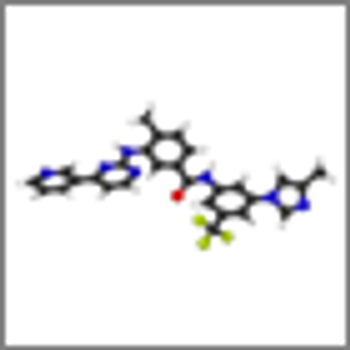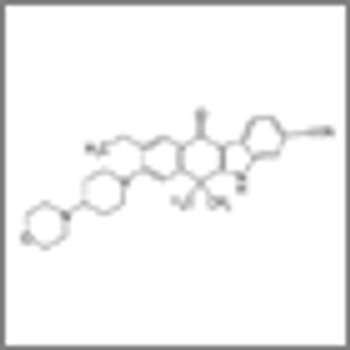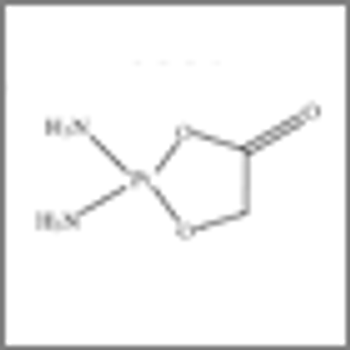
Six carbonyl compounds in exhaled breath can effectively discriminate between lung cancer patients and healthy patients, says a new study.

Your AI-Trained Oncology Knowledge Connection!


Six carbonyl compounds in exhaled breath can effectively discriminate between lung cancer patients and healthy patients, says a new study.

The FDA approved the proteasome inhibitor carfilzomib for the treatment of multiple myeloma, when used in combination with lenalidomide and dexamethasone.

In a phase I study, gemcitabine given concurrently with fixed-dose EBRT showed promising results following surgery in patients with high-risk soft-tissue sarcoma.

Patients diagnosed with colorectal cancer at younger ages are more likely to have an underlying hereditary syndrome than older patients, according to a new study.

The use of BEAMing technology on circulating DNA to identify multiple mutations in real time could help guide treatment in colorectal cancer patients.

Adding tivantinib to erlotinib improved progression-free survival but not overall survival in patients with previously treated non-small-cell lung cancer.

The FDA has granted Orphan Drug Designation to the immunotherapy DPX-Survivac, which is in development for the treatment of ovarian cancer.

Long-term follow-up of a phase II study shows that nilotinib is highly effective in treating chronic phase CML as a first-line therapy, though with relatively common cardiovascular toxicity associated with treatment.

The use of CT-guided radiofrequency ablation is well tolerated and effective among patients with inoperable stage IA non-small-cell lung cancer.

Patients with CML undergoing treatment with dasatinib had a narrower spectrum of mutations in BCR-ABL1 compared to those treated with imatinib.

A new meta-analysis suggests that de-escalation of bone-targeted agents is a safe strategy in breast cancer patients with bone metastases.

Use of post-operative radiotherapy was associated with better overall survival in patients with incompletely resected stage II/III non-small-cell lung cancer.

Large proportions of lung and colorectal cancer patients believe that surgery will cure their cancer, according to results of a new population-based study.

The combination of pemetrexed/cisplatin was superior to gemcitabine/cisplatin in non-squamous NSCLC patients negative for the thymidylate synthase enzyme.

The presence of cervical lymph node metastases was associated with compromised survival even in younger patients with papillary thyroid cancer.

Neoadjuvant TDM-1 was shown to be effective in treating HER2-positive, HR-positive breast cancer compared with trastuzumab, with or without endocrine therapy.

Alectinib yielded good response rates and was very well tolerated in a phase II trial of patients with advanced, ALK-positive non–small-cell lung cancer.

The addition of pertuzumab to trastuzumab and docetaxel offers significant improvement over other options in patients with HER2-positive breast cancer.

Beliefs regarding medication for chronic myeloid leukemia (CML) are strongly associated with suboptimal treatment adherence, according to a new study.

A phase I study showed that transcriptional inhibitor PM01183 with doxorubicin induced responses in patients with small-cell lung cancer.

Ponatinib demonstrates continuing clinical activity in chronic-phase chronic myeloid leukemia patients who failed prior treatment with other TKIs.

Obinutuzumab in combination with bendamustine followed by obinutuzumab maintenance improved PFS over bendamustine monotherapy in patients with refractory non-Hodgkin lymphoma.

A vaccine known as AST-VAC1 was successfully produced from most patients in a phase II trial of patients with acute myeloid leukemia.

Even in the absence of cranial radiation therapy, survivors of childhood acute lymphoblastic leukemia (ALL) have decreased neurocognitive function years later.

The platinum compound nedaplatin in combination with docetaxel improved outcomes over cisplatin and docetaxel in advanced squamous cell carcinoma of the lung.

A trial found that ibrutinib in combination with bendamustine and rituximab is superior to standard of care in patients with previously treated CLL/SLL.

An inhibitor of FLT3 known as ASP2215 showed good clinical activity in FLT3-mutated patients with relapsed or refractory acute myeloid leukemia (AML).

Data from the LUX-Lung 8 trial showed afatinib outperformed erlotinib with regard to both progression-free and overall survival in squamous cell lung cancer.

A new agent, AZD9291, showed promising clinical activity and progression-free survival in a study of patients with advanced stage, EGFR mutation-positive NSCLC.

A treatment analysis for early NSCLC found that wedge resection, along with Cs131 brachytherapy, and stereotactic body radiation therapy are all strong options.